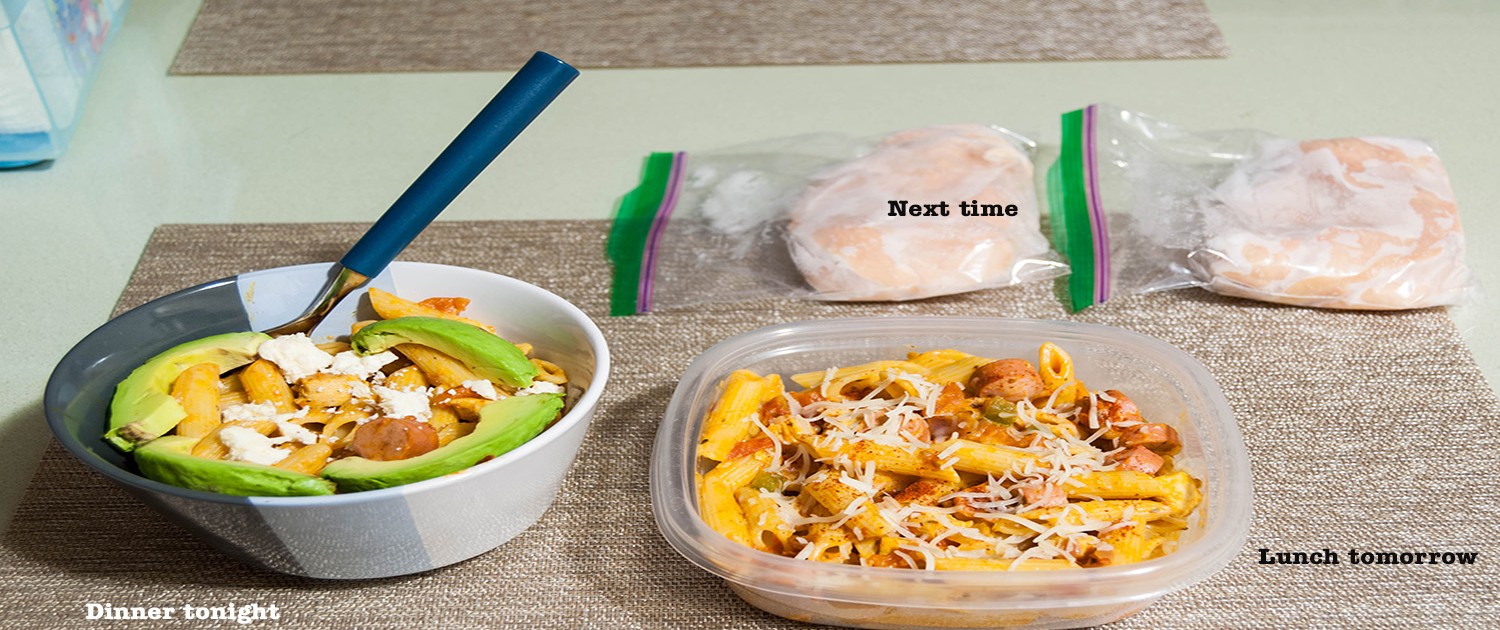How to survive college without a meal plan: Back to basics
Hey there, Trojans!
It’s about 90 degrees outside, and the sunny California sky is as blue as it gets. But summer as we know it has officially ended. It’s time to get our heads out of the clouds, and back into Trojan nation to start the new semester. The first few lectures may not be the toughest — though some professors may try to freak students out by detailing the hundreds of pages you’ll have to read and write during the semester — but besides school, there is one thing some of us, are a little hesitant about.
After many apartment-hunting months, my roommates and I finally found the one. We got the apartment: the bed, the desk, the couch, and we thought that since we’re old enough to have our own place we’re old enough to feed ourselves. Sure that’s doable, but how!? Are we going to end up gaining weight, wasting our money on food we don’t eat or eating fast-food all the time?
You may be asking yourself the same questions, and I can reassure you the answer will be no if you follow thee tips:
In order for you to make food, you need something to cook.
FRIDGE ESSENTIALS
- Pasta
- Fruits & Veggies
- My must-have veggies are green pepper, onion and tomato
- Meats (fish, chicken, steak, pork)
- Cereal
- Eggs
- Ham and cheese
- Granola bars (or whatever kind you like, but do get them for when you’re on the go and don’t have time to make a full meal or snack)
- Coffee
- Milk
- Brita pitcher
You will need some utensils and containers:
PANTRY ESSENTIALS
- Salt and pepper (or preferred condiment)
- A glass, BPA-free bottle for water
- Plastic, airtight containers
- Airtight sandwich bags
- Pans (skillet or sauté pan and sauce pan)
- Wooden cooking utensils (if you decide to go for plastic ones make sure it can stand heat of up to 450 degrees)
- Extra dishes
- Bowls
- Flats
- Cups
- Mugs
- Utensils
- Coffee maker (or instant coffee)
- Blender
- Toaster oven (if your kitchen doesn’t have an oven)
- Microwave
When food shopping:
Go early in the morning
It’s always a good habit to go grocery shopping in the morning. I know it can be a hassle, but if you get up super early you’ll be able to take your time when choosing what to buy. There won’t be that many people at the line, and you’ll get back home early and be able to take a nap. If you get up late, yeah you would have slept, but you’ll realize that you’re not the only person who doesn’t like to get up early and goes grocery shopping on weekends…
Buy what you will eat not what you think you should eat
When choosing your meats think about what you’re actually going to eat. For example, I only like eating steak if it is really thinly cut and super well done, so I only buy chicken or salmon at school since it’s easier to make. For chicken it’s a lot easier if you buy chicken tenders. They’re already cut into smaller pieces and they’re boneless (this will be useful for the next step), but that’s a personal preference. Also look for organic chicken that has not been treated with preservatives.
Smart storing
After you get back from the supermarket, take your meat and your airtight bags. Unwrap the meat, and cut it into smaller portions. Place the portions in the airtight bags and put them in the freezer. Remember to put the bag in the fridge the night before you cook. This way it will defrost. You know your stomach better than anyone so estimate how much meat you’ll eat per meal. It’s also good to cook at night and take the leftovers for lunch, so calculate for twice your usual amount.
These are just a few tips to get you started on this journey, there’s a lot more to it, but let’s take it one step at a time: Basics first.

